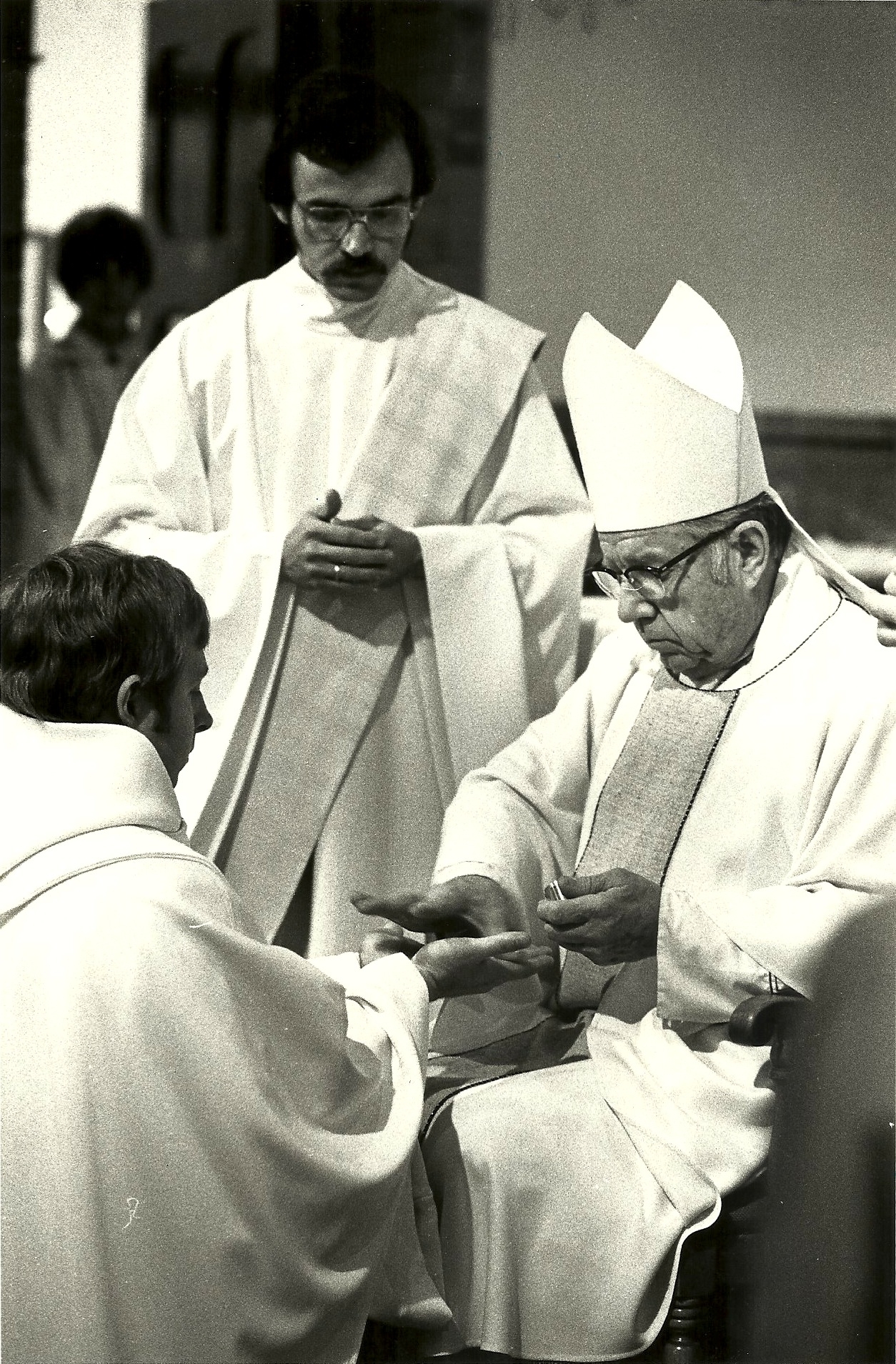For this reason I left you in Crete so that you might set right what remains to be done and appoint presbyters in every town, as I directed you, on condition that a man be blameless,
married only once, with believing children who are not accused of licentiousness or rebellious. For a bishop as God's steward must be blameless, not arrogant, not irritable, not a drunkard, not aggressive, not greedy for sordid gain, but hospitable, a lover of goodness, temperate, just, holy, and self-controlled, holding fast to the true message as taught so that he will be able both to exhort with sound doctrine and to refute opponents. (Ti 1:1-9)
https://bible.usccb.org/bible/readings/110722.cfm
Qualifications for presbyters-bishops reflect a much later period than that of Saint Paul. Although deacons are not mentioned in this passage, it is important to note that the early church did not use “religious” terms for its ministers: episkopos (bishop) means “overseer”, presbyteros (presbyter) means “elder”; and diakonos (deacon) means “table waiter”; rather, we used terms from everyday life. In today’s picture there is a bishop, a presbyter, and a deacon.
These reflections are a result of more than 40 years of ministry as a Roman Catholic priest. Most of these years I spent in the Diocese of Charlotte which covers Western North Carolina. Now I am retired, and live in Medellín, Colombia where I continue to serve as a priest in the Archdiocese of Medellín.
Monday, Week XXXII. Ordinary Time




